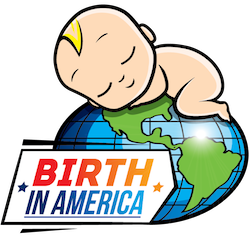Write your contacts
By clicking on the button, you consent to the processing of personal data and agree to the Privacy Policy.
5 things to consider before having a baby abroad

The prospect of setting up your child with second citizenship is quite appealing. Especially when we talk about a developed country with a strong passport and high life standards. However, giving birth is no picnic, let alone doing it in a foreign land. Unfamiliar surroundings, cultural differences, language barrier, and absence of the usual support system (your doctor, friends, and relatives) can turn an exciting experience of childbirth abroad into a nightmare. Here are a few things worth considering when planning a delivery overseas.
Dual citizenship for a child born abroad
If your main goal is to score the second citizenship for your newborn baby, your first step should be to study the local law. There are 35 countries in the world that practice jus soli ("right of the soil") which states that any child born on the territory of said country is granted birthright citizenship. Another 25 countries practice restricted jus soli. Each of them has different conditions for obtaining citizenship by birth – some demand that at least one parent needs to be a citizen, others require permanent residence for a set period of time.
The obligations also differ a lot. If you are currently researching how to obtain a U.S. citizenship for a child born abroad, you might also want to check the taxation and military policies for the U.S. citizens as this information may drastically change your mind. The better you do your homework – the fewer surprises there will be along the way.
The obligations also differ a lot. If you are currently researching how to obtain a U.S. citizenship for a child born abroad, you might also want to check the taxation and military policies for the U.S. citizens as this information may drastically change your mind. The better you do your homework – the fewer surprises there will be along the way.

Certificate of registration of birth abroad
When a baby is born, it must be properly registered. And it is especially crucial to get everything right when it comes to submitting an application for a child born abroad. We recommend studying the procedure of obtaining dual citizenship thoroughly to make sure that your infant's documents are in order by the time you need to leave the country. There are also a lot of companies that specialize in birth tourism. They can help prepare and translate the documents for a child born abroad.
Flight regulations
Before you plan the trip, check the flight regulations for expectant mothers. Most airlines require a note from your doctor with a confirmation that it is safe for you to fly after 28 weeks. But these requirements can vary with different airlines. They can also depend on the duration of the flight.

Health care
Besides looking up how to register a birth abroad, read about the health care system of the country you chose for the birth, paying extra attention to pre- and postnatal care. Research the hospitals, prices, doctors, and find a bilingual doula if you don't know the local language. Choosing the right hospital will be easier if you enlist help from a birth tourism agency.
Budget
Once you have gathered all the necessary information, it is time to plan your expenses and set up a budget. Make sure you keep it flexible because when it comes to having a baby abroad, you are going to be charged extra for any complications during the labor. Besides medical care, you need to calculate your expenses on accommodation, food, transport, and baby products.
Now you know everything you need to know about planning birth tourism to ensure your delivery abroad goes as smooth as possible. Good luck!
Now you know everything you need to know about planning birth tourism to ensure your delivery abroad goes as smooth as possible. Good luck!


